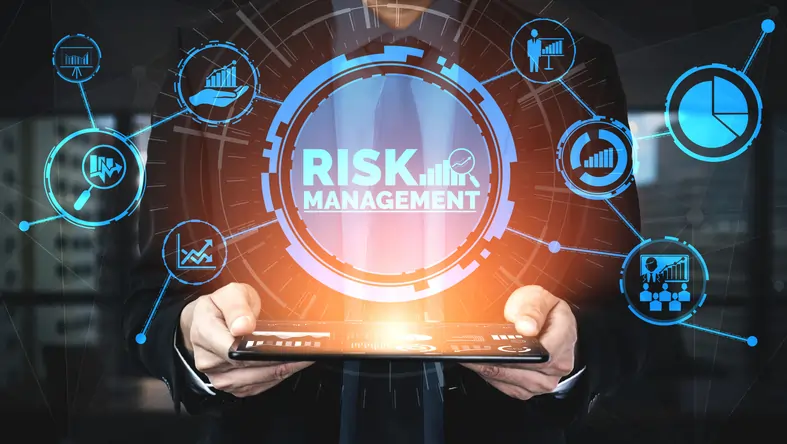Interviews
Transforming Compliance and Risk Management through Automation: An Interview with Fintech Expert Chintamani Bagwe
Published : 4 months ago, on

Chintamani Bagwe
August 8, 2024
Chintamani Bagwe, an accomplished Fintech Expert in Banking Compliance and Risk Management, currently serves as a Senior-level technology leader at Citibank. With two decades of diverse experience across the financial services and technology sectors, he spearheads high-impact fintech projects, leveraging AI/ML, Big Data Analytics, and Business Intelligence technologies to optimize automation and enhance compliance processes. Chintamani’s strategic vision and analytical prowess have been pivotal in bridging technological advancements and business goals.
Chintamani has an impressive educational background, with a Master’s in Management with Finance Specialization, a Bachelor’s in Engineering, along with certifications in specialized disciplines. This unique combination of domain expertise, technical acumen, and managerial excellence is reflected in his thought leadership, evidenced by his numerous publications on fintech and banking in reputed journals. He has also served on program committees, editorial boards, and conducted peer reviews for esteemed journals.
Recognized for his thought leadership, Chintamani is a distinguished jury member for award ceremonies of prestigious organizations such as the Globee® Awards, CODiE Award by SIIA (Software & Information Industry Association), Stevie® Awards, and Brandon Hall Group Excellence Awards. His contributions as a judge at the Future Business Leaders of America (FBLA) and Business Professionals of America (BPA) 2024 Regional Leadership Conference underscore his dedication to mentoring and empowering future business leaders. This commitment is further highlighted by his receipt of the Prestigious 2024 Global Recognition Award.
Prominent publication houses such as TechBullion, Tech Times, and International Business Times have featured Chintamani’s insights on various topics for their readership, underscoring his expertise and influence in the fintech and banking domains.
Throughout his career, Chintamani has achieved significant milestones, including conceptualizing and executing comprehensive strategies in response to regulatory mandates, such as those from the Office of the Comptroller of the Currency (OCC) and the Federal Reserve Board (FRB). By integrating advanced technological solutions with existing compliance frameworks, he has driven transformative improvements, ensuring sustained excellence and regulatory adherence.
Measuring ROI in Risk Assessment Automation
With the constant evolution of financial technology, the importance of robust risk assessment mechanisms cannot be overstated. Chintamani Bagwe shares his insights on the transformative power of risk assessment automation and how to measure its return on investment (ROI).
Q: Can you explain the significance of risk assessment automation in today’s financial industry?
Chintamani Bagwe: Absolutely. Risk assessment automation has become a cornerstone in modern financial operations, primarily due to its ability to streamline processes, enhance decision-making, and boost efficiency. In an industry that is highly regulated and constantly evolving, the ability to quickly and accurately assess risks is crucial. Automation not only helps in identifying potential threats in real-time but also minimizes human error, ensuring that compliance processes are both efficient and effective.
Q: What are the key metrics used to measure the ROI of risk assessment automation?
Chintamani Bagwe: Measuring ROI in risk assessment automation involves several key metrics. First, Risk Reduction is a critical metric, assessing how well automation reduces the occurrence and impact of risks. Second, the Financial Impact measures the monetary benefits gained through automation, including cost savings and increased revenue. The Return on Investment (ROI) itself is calculated by comparing the gains from automation to the costs incurred. Other important metrics include Risk-Adjusted Capital, Internal Rate of Return (IRR), Simple Payback, and Net Present Value (NPV).
Q: How can businesses accurately calculate these metrics?
Chintamani Bagwe: The process begins with defining the goals and objectives of the automation initiative. Once these are clear, businesses should identify the key metrics that will measure ROI. This includes both financial and non-financial impacts. For example, Risk-Adjusted Capital involves evaluating the amount of capital needed to support the risk management program and the potential return on that invested capital. IRR helps determine the profitability of the investment by calculating the discount rate that equates the present value of the expected cash flows to the initial investment. Simple Payback measures the time required to recover the initial investment, and NPV calculates the present value of all expected cash flows associated with the project.
Q: Could you share some successful case studies that highlight the ROI of risk assessment automation?
Chintamani Bagwe: Certainly. One notable example is a project undertaken at a global banking giant where we implemented a comprehensive risk assessment automation system. By leveraging advanced analytics and machine learning algorithms, we significantly reduced processing errors and improved data quality. This implementation led to a more streamlined compliance process, resulting in a 30% increase in operational efficiency and saving the organization considerable amount annually.
Another significant project was at a leading global financial institution where we automated the compliance risk management program in response to a regulatory consent order. The automation involved creating a quantifiable compliance risk measurement model, integrating data from multiple systems, and developing a real-time dashboard to monitor compliance metrics. This initiative resulted in regulatory compliance and provided actionable insights that facilitated a 35% month-over-month improvement in key metrics.
Q: What best practices would you recommend for effectively communicating the value of risk assessment automation to stakeholders?
Chintamani Bagwe: It’s essential to clearly define key metrics and goals from the start. Providing concrete examples and case studies can significantly enhance understanding. Utilizing visual presentations and data visualization tools can also help stakeholders grasp the value of automation more easily. Tailoring communication to address the specific needs and priorities of different stakeholders is crucial, as is continuously measuring and communicating ROI. Engaging in two-way communication to seek feedback and address concerns ensures that the value of automation is well understood and appreciated.
Q: How can organizations implement ROI strategies to improve operational efficiency?
Chintamani Bagwe: Implementing effective ROI strategies involves several steps. Firstly, aligning ROI goals with organizational objectives ensures that the initiatives are focused on the most impactful areas. Leveraging data analytics to drive decision-making, continuously monitoring and evaluating ROI, and optimizing processes with automation are critical. Fostering collaboration and communication between stakeholders, investing in employee training and development, and continually adapting and evolving with industry trends and regulations are also essential for maximizing ROI and enhancing operational efficiency.
Q: What are the main challenges you have faced in risk assessment automation and how did you overcome them?
Chintamani Bagwe: One of the primary challenges is ensuring the accuracy and reliability of automated systems. This requires robust testing and validation processes to identify and mitigate potential issues. Additionally, gaining buy-in from all stakeholders can be challenging, but this can be overcome by clearly communicating the benefits and demonstrating the tangible value of automation through concrete examples and case studies. Finally, integrating new technologies with existing systems can be complex, but with careful planning, phased implementation, and continuous monitoring, these challenges can be effectively managed.
Q: What is the future outlook for risk assessment automation in the financial industry?
Chintamani Bagwe: The future of risk assessment automation looks very promising. As technologies continue to evolve, we can expect even more advanced and sophisticated tools to become available. AI and machine learning will play an increasingly significant role in enhancing the accuracy and efficiency of risk assessments. Additionally, the integration of big data analytics and business intelligence will provide deeper insights and more comprehensive risk management solutions. Ultimately, the continued advancement of risk assessment automation will enable financial institutions to stay ahead of regulatory requirements, mitigate risks more effectively, and achieve greater operational efficiency.
Final Remarks
Chintamani Bagwe’s insights highlight the transformative power of automation in risk assessment and overall compliance platforms. By integrating advanced analytics, AI, and machine learning, financial institutions can enhance accuracy, efficiency, and regulatory compliance. The strategic approach and clear communication of automation’s value are crucial for achieving operational excellence. As technology evolves, these innovations will continue to provide robust solutions for mitigating risks and maintaining compliance in the dynamic financial landscape.

-
Finance3 days ago
Phantom Wallet Integrates Sui
-
Banking4 days ago
Global billionaire wealth leaps, fueled by US gains, UBS says
-
Finance3 days ago
UK firms flag over $1.4 billion in labour costs from increase in national insurance, wages
-
Banking4 days ago
Italy and African Development Bank sign $420 million co-financing deal







